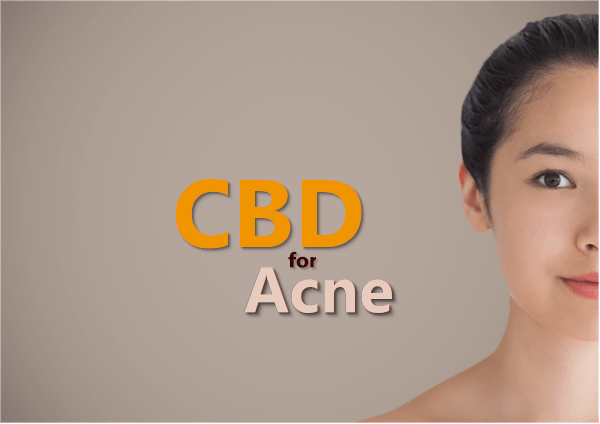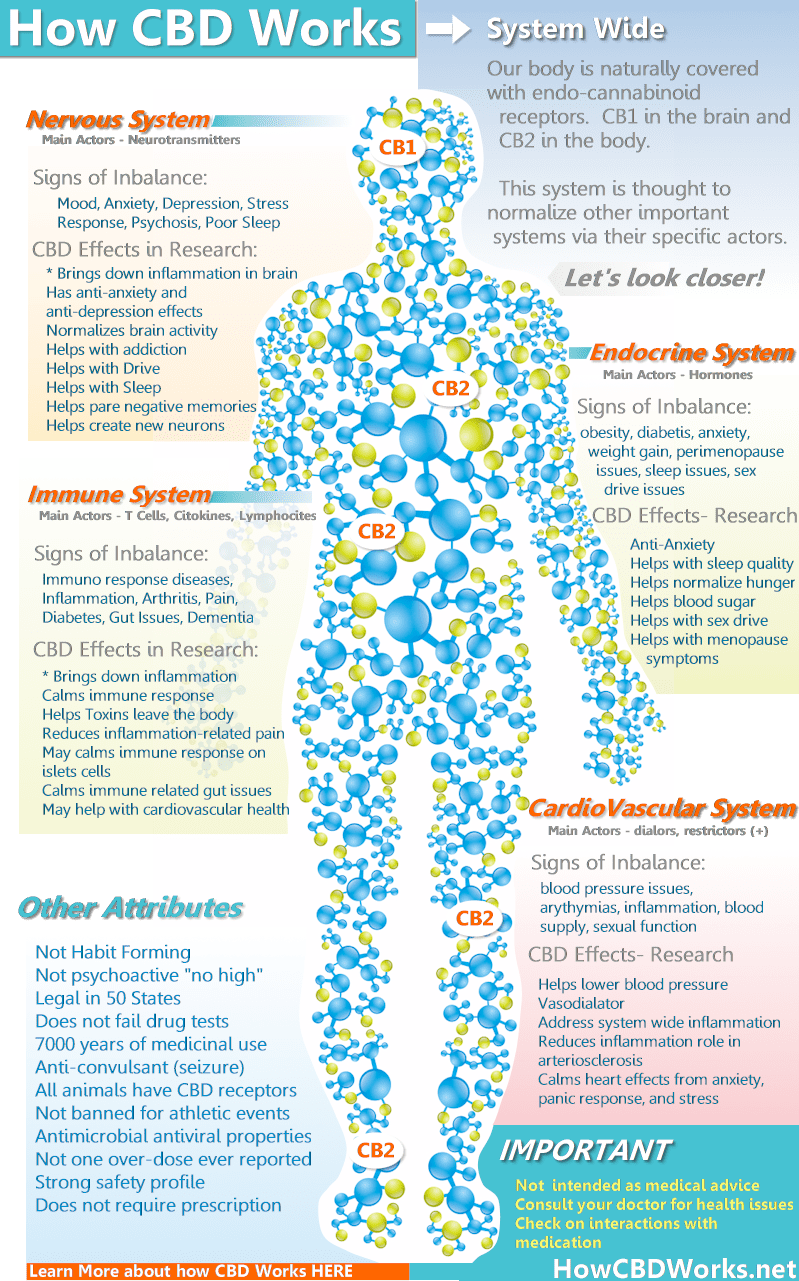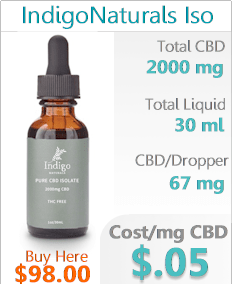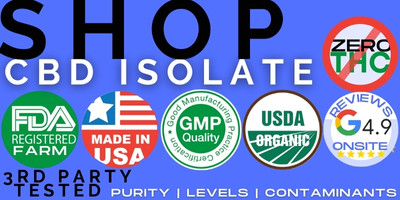CBD Research - How CBD Works for Acne

OW DOES CBD WORK FOR ACNE – BASED ON RESEARCH
It's so perfectly made for CBD.
Seriously.
If you've studied CBD research for 1000's of hours like me (sad, but true) then you come across reoccurring pathways and body systems.
The endocrine system and immune system are top of the list.
One controls hormones and the other controls inflammation and repair in the body.
Okay...you just spelled out the root cause of acne!
We can dispel all the myths about pizza and cleanliness.
The bacteria that are primarily linked to acne is on all of our faces all the time!
Our body's reaction to it (inflammation) and a good hiding place (overactive oil and sebum production) are the gasoline that gets added to the fire.
These are right in CBD's wheelhouse!
We'll learn all about how CBD works based on NIH research.
Acne products have been prone to lots of sales hype (just behind weight loss) so we want to research.
We're also going to dive into interesting research dealing with histamines and acne flair ups!
This may lie at the heart of studies showing a connection with dairy, chocolate (sorry), and other histamine complicating foods.
You're going to have a different take on acne and a good deal of information to attack it with!
You can jump to any section here:
- An updated view of what causes acne
- The endocannabinoid system and acne
- What research is showing for CBD and acne
- CBD versus other options
- CBD versus Benzoyl Peroxide and Hydrogen Peroxide
- CBD versus Antibiotics for Acne
- CBD versus Accutane for Acne
- What's the best CBD for acne
- How much CBD to take for acne
- CBD and teenagers
Let's get started.
An Updated View Of What Causes Acne
A quick introduction to what's going with acne.
It's primarily driven by the following:
- Hormone levels (too high or too low)
- Excess production of sebum and skin
- Inflammatory response from the immune system to bacteria build-up
Here's the basic mechanics of how it works.
First, every part of your body, including your skin, is covered in bacteria.
It's okay!
That's just part of being on this Earth.
Some are good (essential even) while others are bad for us.
There is one bacteria called B Acne (aptly named).
We have this on most of our skin surface depending on the area of the body.
You can't really wash it off so don't get too fixated on it.
Most of the time, it's not doing much.
The issue is when our hormone levels go in flux.
This usually happens at specific times:
- Puberty
- Pregnancy
- During the monthly cycle
For example, the vast proportion of acne over age 20 happens to women.
Both genders experience acne during puberty.
If you've read any other article on this site, you realize just how powerful hormones are in the body.
The main culprit with acne is testosterone.
Both men and women have testosterone (although men have more of it).
Testosterone is called an androgen hormone.
This just means that it can exert male gender-specific influences on the body.
Testosterone is incredibly excitatory!
That's the medical term for something that revs up the body in different ways.
You can see it with bodybuilders that take testosterone (to the detriment of their health).
They put on muscle, experience increased aggression, and...wait for it...
Can develop severe acne!
In the skin, testosterone speeds up the production of sebum, skin, and hair
Sebum is just the naturally produced oil our body makes.
Without it, our skin would be dry, thin, and weak.
Too much of it, and it blocks up the little hair follicles and pores of our skin.
That's the trigger!
Remember those opportunistic bacteria hanging around?
Well, they're hanging around in the follicles and pore, and all of a sudden, it's blocked.
A nice, dark, closed-off, and warm pocket to grow in.
Their favorite kind of place to be!
Their explosion in numbers gets picked up by our immune system.
Bacteria. Large numbers!
Attack!
The immune system goes into attack mode with T-cells, macrophages, cytokines, and an army of different weapons.
That's the "white" in white head. Macrophages (literally means big mouth) are eating up the bacteria and are being escorted out of the body.
The redness is just the inflammatory response from the body.
Get this OUT!
That...is the basic outline of acne.
Sometimes, it just a pimple.
It can also get very severe and appear red, inflamed, and cystic.
This is a function of the immune system's response.
It also points to why certain medications can cause acne.
Even some antibiotics (while others are used to quiet down acne).
The risk of antibiotic use is that there are knock-on effects to the very system we're trying to address...the immune system and gut biome that help govern it.
Remember the good bacteria!
Most of them are in the gut and they turn genes on and off for our immune response.
Histamine release is part of the body's response to getting things out!
Some foods are high in histamine...
Ah-ha! The chocolate and dairy connection!
So...let's look at the endocannabinoid system in regards to acne!
The Endocannabinoid System And Acne
Discovered a few decades back but really only recently studied, the endocannabinoid system (ECS) is critical to acne formation and treatment.
Every living animal has one and it's dated back to about 600 million years ago.
That's before T-Rex!
Eight times older than T-Rex.
So, awhile.
Research is showing that it's tasked in balancing key systems in the body:
- Immune system (umm...check 1)
- Endocrine system (hormones...check 2)
- Nervous system
See what we mean about acne!
The first two are literally at the root of all acne.
It gets more interesting though and we'll talk about how this system (and CBD) govern sebum production!
Here's a quick vision of the system:

Keep in mind that this system is often taxed in today's modern (and chemical) world.
You can learn all about it at the Beginner's Guide to CBD or How Does CBD Work pages.
Does the endocannabinoid system even interact with the skin?
We hate to do this but we're going to lead with a smoking gun:
Recent studies have intriguingly suggested the existence of a functional ECS in the skin and implicated it in various biological processes (e.g. proliferation, growth, differentiation, apoptosis and cytokine, mediator or hormone production of various cell types of the skin and appendages, such as the hair follicle and sebaceous gland).
ECS is EndoCannabinoid System.
Did you read that laundry list of things that directly impact acne?
- Proliferation. Growth. (overproduction of sebum, hair, and skin).
- Mediator of hormone production (androgen, etc)
And finally...this gets ridiculous...
- "Such as hair follicle and sebaceous gland)".
To decipher...sebaceous glands make SEBUM!
The oil that jams up the works at the beginning of the acne process.
We could literally stop there.
But we won't (we're difficult that way!)
What happens when this endocannabinoid system goes out of whack??
The disruption of this delicate balance might facilitate the development of multiple pathological conditions and diseases of the skin (e.g. acne, seborrhea, allergic dermatitis, itch and pain, psoriasis, hair growth disorders, systemic sclerosis, and cancer).
It's a laundry list of skin issues.
That speaks to the role of the endocannabinoid system in "balancing" other key systems.
It's not a hammer in one direction which is what makes it beautiful.
Let's dig deeper into the underlying research.
What about the over-production of sebum, hair, and skin (the initial roadblock that gives bacteria a place to hide out):
Because cells with "silenced" CB2 exhibited significantly suppressed basal lipid production, our results collectively suggest that human sebocytes utilize a paracrine-autocrine, endogenously active, CB2-mediated endocannabinoid signaling system for positively regulating lipid production and cell death.
Let's get out our medical translators.
They're basically saying that by triggering endocannabinoid receptors (CB2) they were able to manage the balance of cell growth and death in sebum-producing tissue.
Balance. Balance. Balance.
Remember what starts acne is an imbalance driven by revving up hormones resulting in too much oil, skin, and hair.
Just to prove the point on "balance", the endocannabinoid is equally faulted for dry skin!
Dry skin is the opposite of too much oil. It's not enough.
This shows how the ECS can work both ways and ultimately is about balance.
Just a head's up...balance means no acne.
What about the inflammatory response to the bacteria?
The redness. Swelling. Tenderness. Irritated skin.
This is he inflammatory response which is controlled by our immune system.
Guess what system is tasked with balancing its response?
Good work! The ECS.
We've written extensively on:
There's plenty of research on all those pages to support the endocannabinoids system's balancing effect on both the front end (hormones) and back end (inflammation) of acne.
The middle is the overproduction of sebum, skin, and oil which we showed above.
That's all great for the endocannabinoid system but what can we do about it!
Let's introduce CBD.
What Research Is Showing For CBD And Acne
CBD is short for cannabidiol.
It's a cannabinoid extracted from the cannabis plant.
Unlike its cousin, THC, it doesn't have a psychoactive effect (no high) and is not habit-forming.
The list of CBD benefits keeps growing but let's look at CBD and acne.
Basically, the endocannabinoid system can get out of balance itself.
Think of all the hormone-mimicking chemicals and immune response stressors we come into contact with daily!
Everywhere!
Autoimmune diseases are a perfect example of what happens when our ECS is overly taxed.
CBD can help to reinforce this system.
It works directly with the CB2 receptors throughout the body.
Let's look at acne specifically.
The first question is whether CBD actually penetrates the skin and affects the ECS system.
Good news there:
CBD's skin permeation and its accumulation in a depot at levels that demonstrate the potential of transdermal CBD to be used as an anti-inflammatory treatment.
Next, they started to see if just cannabis oil itself would have a positive effect on sebum over-production:
Cannabis seeds extract-treated side showed a significant decrease (p<0.05) compared with the base treated side.
The safety profile was also very strong and well-tolerated.
Let's then look at CBD used directly for Acne Vulgaris (the main classification of acne).
In the study, let's break down all the important components of acne we discussed (with some deciphering)...
- CBD reduced the production of sebum (lipid)
- CBD reduced various pro-growth compounds INCLUDING testosterone
- CBD exerted complex anti-inflammatory actions
Their summary...
Cannabidiol exerts sebostatic and antiinflammatory effects on human sebocytes.
Okay...did we just name off all the component pieces of acne?
You could almost argue that acne is an ECS disease.
A disease of a dysregulated endocannabinoid system (get in line...there's plenty where that came from).
Keep in mind that most modern treatments hammer just one aspect of this equation with serious knock-on effects.
Let's look at those.
CBD Versus Accutane, Antibiotics, And Other Treatments
The standard offering for acne is one of the following:
- Hydrogen peroxide
- Benzyl peroxide
- Various antibiotics
- Accutane
Let's walk through these.
CBD Versus Benzyl Peroxide And Hydrogen Peroxide
The two peroxides (plus others) are mainly found in over the counter treatments.
Their goal is to try and remove the excess oil, hair, and skin from the skin while also providing a hostile environment for the bacteria.
It's a cleaning regiment really.
This is helpful on the surface but the issue is that deeper in the skin where it's blocked up.
It also doesn't stop the body from continuing to make new oil, skin, and hair.
CBD Versus Antibiotics For Acne
Next, antibiotics.
These are going after the bacteria in question that the body is responding to.
The downside of using over-using antibiotics is finally gaining traction in the medical community.
Check out the CBD and Gut article.
First, you can adversely affect the good bacteria (our skin is covered with them) which work symbiotically with our body (skin being the biggest organ).
Secondly, you're still only addressing the one component.
Beyond this...we don't know everything that happens with antibiotics (except that farmers use them to fatten up livestock very quickly).
For example, a common antibiotic used for acne, doxycycline, affects a pathway the body uses to get rid of cells in the body (autophagy and apoptosis). That's important for proper maintenance of healthy tissue.
I found this out the hard way when I tore my cornea and it continued to re-tear at night for months.
Turns out my body has a robust pathway for clearing out tissue and wouldn't let the new cornea attached to the slippery surface below.
Doxycycline (after two horrible surgeries) fixed it instantly by slowing down that cell removal pathway.
You need that pathway to get rid of broken cells such as cancer.
I digress. It just shows how little we know about antibiotics.
CBD Versus Accutane
Finally, our favorite (sarcasm is hard in written form)...Accutane.
Accutane is generally used for people with severe or scarring acne but it's also commonly given out to teens with acne that's expected during puberty.
It's a derivative from the Vitamin A that...
Decreases sebum!
Didn't we cover that up top with CBD?
Granted, we didn't know about CBD when Accutane came out.
It's the side effects of Accutane (the drug is called Isotretinoin).
Isotretinoin is available in a variety of brand names, including Absorica, Amnesteem, Claravis, Myorisan, and Sotret.
Do you know why it is no longer available as "Accutane"?
Due to lawsuits from side effects.
Good Lord.
First...it's a hammer. It's not about sebum balance but sebum reduction!
Problem is that we need sebum to protect our skin.
Accutane can significantly dry out the skin.
Then there are the very serious birth defects for pregnant people using Accutane.
Missing eyes. Missing organs. Heart defects.
Then there's the little issue with brains.
The drug increases pressure in the brain.
This can result in
- severe headache
- blurred vision
- dizziness
- nausea
- vomiting
- seizures
- stroke
Finally, and maybe more importantly....the mental health issues.
Changes in mood. Depression. Suicidal thoughts. Psychosis.
Finally, let's not leave a body system untouched.
The Digestive Tract... you know...the seat of your immune system, gut bacteria, and the "second brain" where 80% of our body's serotonin is made?
Let's throw in blood, bones, and muscles so we can actually build a Frankenstein from all the body parts impacted.
Look...Vitamin can build up in our tissue. So can this Vitamin A extract.
We're not your doctor and we're not giving directions but it's absolutely crazy (in our opinion) to try Accutane before CBD.
Look...Accutane was developed originally to be a chemotherapy agent.
To prescribe this for acne (outside of extremely severe acne) BEFORE CBD is highly suspect in our opinion.
That's a nice way to put it.
So...if we want to try CBD, what's the best type and way to take it?
What's The Best CBD For Acne
First, there's the type of CBD to take.
This question takes two forms:
- Delivery of CBD – Topical versus Oil
- Type of CBD – Isolate versus Full Spectrum
We've seen good evidence for both types of delivery.
Even though topical would appear to make sense for acne, the CBD oil addresses the issue systemically.
The inflammatory response and hormone imbalance in a system issue.
You can try both to test but make sure for the topical that the balm is very clean.
We don't want to further block up up the pores while we're trying to address acne.
The CBD oil might be a better approach due to this.
Interestingly, CBD is both antibacterial and antimicrobial.
Secondly and this is interesting for acne and histamines.
CBD Isolate may be the best approach for acne versus the full spectrum that's pushed everywhere.
You can learn all about Full Spectrum versus CBD Isolate here.
Let's look at the clues.
There are certain dietary triggers that can exacerbate (not necessarily start acne).
Chocolate and dairy both come to mind.
Both also happen to be top triggers for people with Histamine issues!
Learn all about Histamines and CBD here.
Research is showing a potential tie for acne in histamine in people who are susceptible:
On the other hand, sebaceous function can be also significantly modified by histamine and conversely, antihistamines.
An easy test is to see if anti-histamines have a calming effect on your acne.
Either way, roughly 40-60% of people (highest in women) have allergy or histamine issues.
We won't avoid the excess plant material of Full Spectrum and concentrate on CBD Isolate for acne.
At least to start.
For CBD Isolate, the best-valued options with 3rd party testing in our comparison is:


So how much CBD should we look at taking for acne?
How Much CBD To Take For Acne?
The standard guidelines on CBD dosage apply here.
Start low at 25-30 mg doses to see how your body responds.
Take the CBD after a meal and away from medications (by 2 yours) to get the most out of it.
Research is showing doses up to 300-600 mg for more serious issues.
Keep in mind that the effects of CBD are cumulative and will build over time.
Effects on acute issues like anxiety, sleep, and pain will be faster.
Acne is a balancing issue so give it a few days.
We have seen pretty dramatic effects though with acne.
Most importantly, the safety profile of CBD is very strong.
Speaking of which, since acne is so prone during teenage years (puberty), can teenagers take CBD?
Can Teenagers Take CBD For Acne?
There is currently no age restriction for CBD in the US.
It's treated like a food supplement currently by the FDA.
The first FDA approved medication was just green-lit for seizures.
We can't directly recommend using CBD with teenagers but we also haven't seen anything in the research to say differently.
Personally, I have used CBD with my entire family including my 15 and 17-year-old sons.
It works wonders with them for sleep, anxiety, acne, and pain (they're boys after all).
The alternatives (NSAID's, sleep aids, anti-anxiety medications, and acne treatments) have too many downsides and just aren't as effective in the end.
The research is fast and furious now in the CBD space (just look at the list of CBD benefits and research here).
The only CBD study we've seen is with a 10-year-old girl who experienced abuse and had terrible insomnia and resulting PTSD nightmares and anxiety.
CBD was given to her after all other treatments failed and it had a significantly positive effect.
We need more research.
In the meantime, weigh the positives and negatives of the other treatments for acne and teenagers.
As parents, it became pretty clear where to start for us.

You can see pricing for safety screened products here:
Again, please let us know your results! Spread the word.